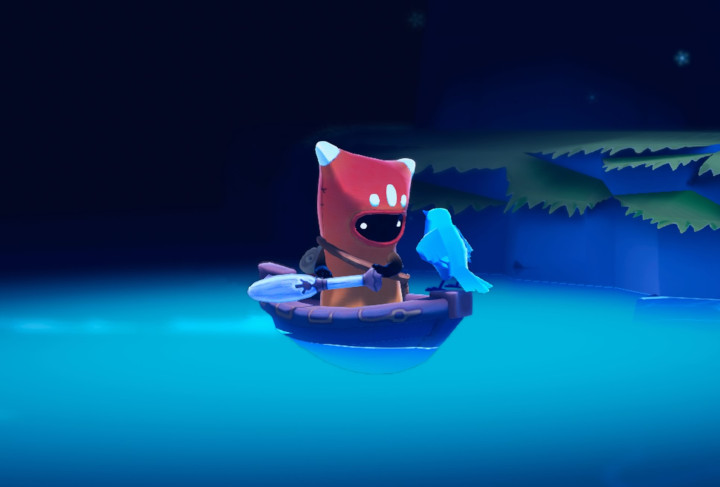
The Last Campfire comes from Hello Games, the studio behind the universe-sized No Man’s Sky. It seems kind of odd, then, that it’s such a tiny little game. But don’t be fooled; its small size belies how poignant and touching The Last Campfire actually is.
In an interview with CNET, Steven Burgess, who worked as a designer on The Last Campfire, said this:
Like any good folktale… we hope we have left the interpretation of the story and the message very open. We’d like to think that it is as much about what the player brings to the game as the game brings to them.
So maybe this is a personal interpretation rather than one that was intentional on the part of Hello Games, but for me, The Last Campfire is a game about depression. The score is somber (though not without its upbeat moments). The game is brilliantly narrated; every word is drenched in sadness, and statements of hope are oftentimes enunciated as if they end with a question mark. The gameplay loop has you finding and awakening your peers, who have given up hope completely and have crumpled into faded heaps of depression nap. This is some dark stuff for a game that’s designed to look like a children’s book.
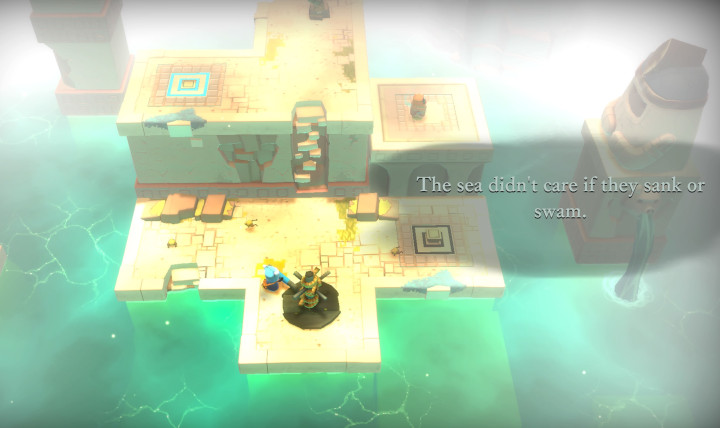
Yet all is not lost. Once you wake up the playable character — an ember who has been lost — you must help out your fellow forlorn embers by reigniting the spark of hope inside them. If you can do this, they will gather at a campfire that’s watched over by a ghost.
The campfire ghost feels like an important detail to me. If you’re a person who struggles with depression, even when you find something hopeful to latch onto, depression is always lingering unseen like a ghost, even over your happiest moments. Sylvia Plath made a similar observation in her famous novel The Bell Jar. In fact, the titular bell jar was a metaphor for Plath’s own despair, which the narrator says is always hovering over her head, waiting to descend at any moment.
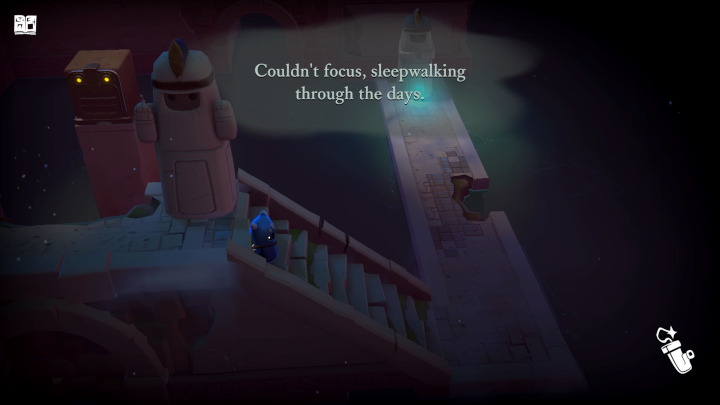
I’m not alone in thinking The Last Campfire is a game about depression. That seems to be a pretty common interpretation, in fact. About the game, Rebecca Spear at Android Central said:
In between solving fun puzzles in a gorgeously rendered world, the game gets so bogged down by crushing hopelessness that instead of bringing relief to players who struggle with insecurities, it only seems to pull them further down.
And later in the review:
There isn’t a lot of happiness that counteracts the constant barrage of existentialism and pain, either. So the characters open a hole into your soul that you might just feel compelled to dive down into.
As someone who wrestles daily with depression, I definitely sense the game’s “crushing hopelessness,” but I disagree with the sentiment that it might pull people down. While some of the narration might come off as a bit melodramatic, there’s a sincerity to it that makes it work. And the colorful storybook visuals lend a cheerfulness to the design that makes the darker elements a lot more palatable.
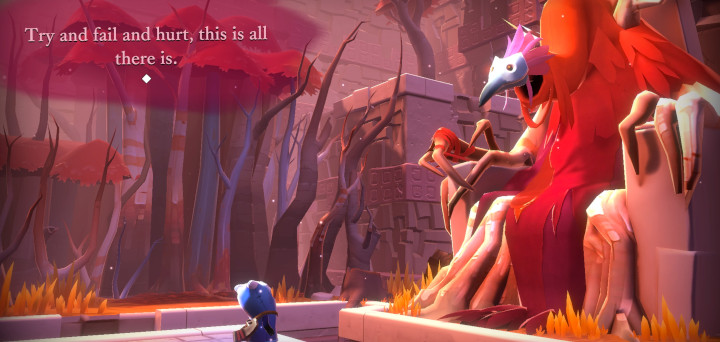
And, more importantly, the overall theme of the game is about clinging to tiny moments of hope in the midst of an overwhelming despair. And that resonates with me really, really hard.
One thing I want to mention here — and Rebecca Spear mentions this in her own review as well — is that there are some forlorn who you aren’t able to help at all. They’ll tell you that they aren’t ready to be helped yet, and you must simply accept this and move on.
This is a really important part of the discussion about depression as a mental illness that too many people fail to understand. Depression — true depression, not just a simple feeling of sadness — is a disorder, and that means there isn’t always an easy solution. I can’t count the number of times that, when I’ve been in the middle of a severe depressive episode, someone asks me if I’m eating vegetables and getting sunlight, like I’m some sort of Neopet or something. Yes, these things can help a little bit sometimes, but when you’re in the thick of it, they’re mostly unhelpful — on top of the fact that they feel impossible.
If there are people you care about who genuinely struggle with depression, it’s really important to know when you can actually help and when it’s best to just wait out the depressive episode. With depression, sometimes allowing yourself to do nothing about it is actually the first step in recovering, as counterintuitive as that might sound to some people.
As The Last Campfire puts it, “Not all problems were puzzles to be solved.” That might be the single most relatable line in the entire game.
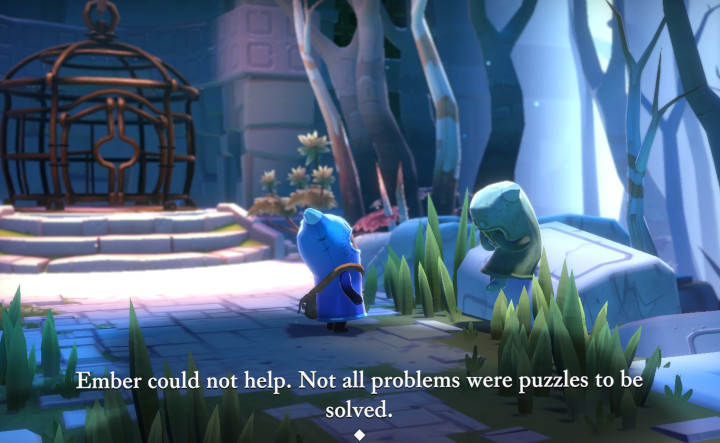
The Last Campfire is a game that looks bright but is filled with darkness. Unlike something like, say, The Legend of Zelda: The Wind Waker, this is a darkness that hits much closer to home rather than an apocalyptic one. It’s a darkness that a lot of us — myself included — have battled against in real life instead of an imagined one. And that makes The Last Campfire work on an emotional level that I think is somewhat rare in the gaming realm.
The sea, as the game so aptly points out, doesn’t care if you sink or swim. But through all of it, there are lingering moments of hope that keep you afloat, like pieces of flotsam after a shipwreck. The whole point of the game, in my interpretation, is that those tiny things matter — especially when it’s storming and you can’t see land in any direction.
Striking the perfect balance between depression and hope is a precarious tightrope walk, but I think it’s one that The Last Campfire has managed with profound success.
Excellent review. I agree with you.
You were able to explain exactly the feeling I had with the game. But, I couldn’t translate it into words.
Thanks for sharing your review.
Thanks for the comment! This little game meant a lot to me, and I’m glad to learn that other people are having a similar experience with it.